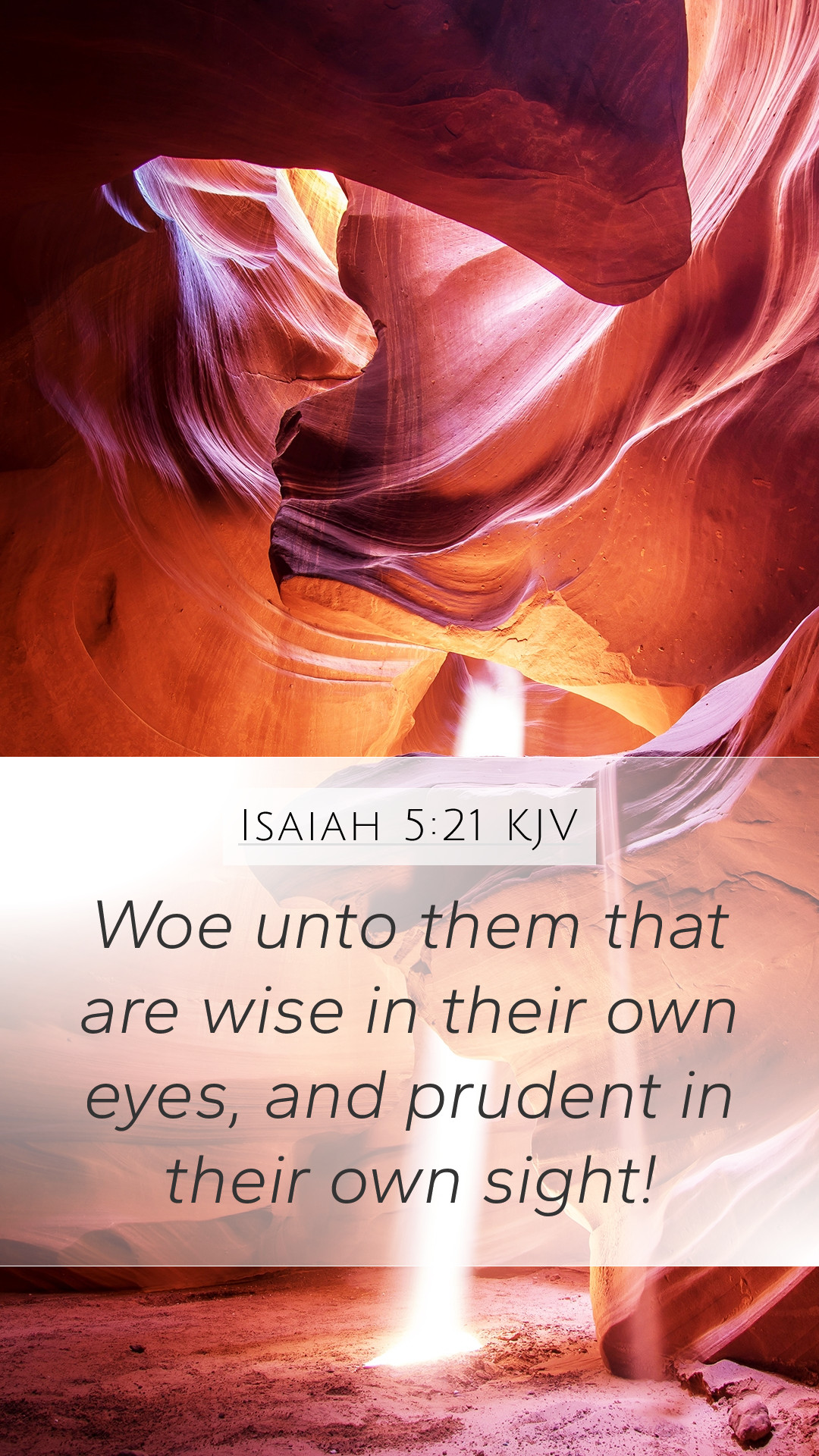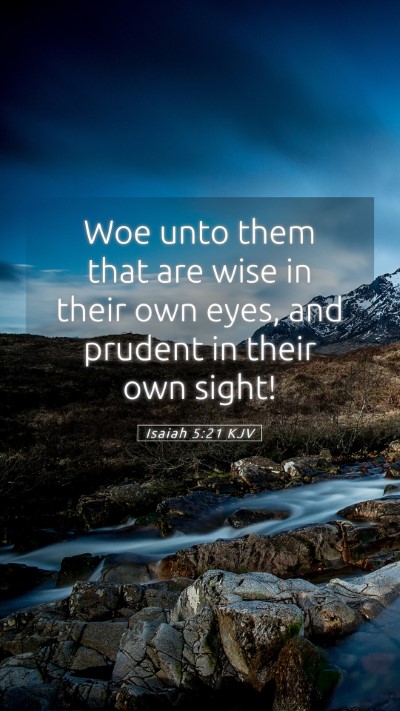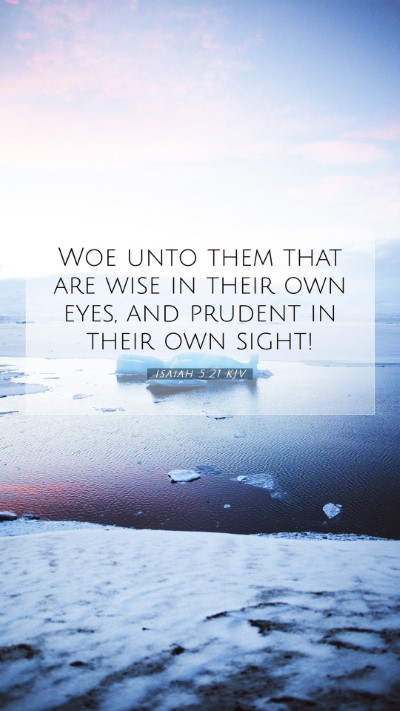Understanding Isaiah 5:21
Isaiah 5:21 states: "Woe unto them that are wise in their own eyes, and prudent in their own sight!" This verse serves as a profound warning against the arrogance of self-sufficiency and the perils of misplaced wisdom. Various esteemed commentaries contribute valuable insights to a comprehensive interpretation of this Scripture.
Bible Verse Meanings
In the context of prophetic literature, the call to condemn the self-proclaimed wise is particularly noteworthy. This verse encapsulates the essence of a theme prevalent in the Book of Isaiah: the folly of relying on human understanding instead of divine guidance.
Commentary Insights
- Matthew Henry: Henry emphasizes the deep-rooted sin of pride and self-deception. He remarks that those who consider themselves wise in their own eyes are fundamentally blind to their spiritual shortcomings. Such individuals fail to acknowledge their dependence on God’s wisdom.
- Albert Barnes: Barnes reinforces the notion that true wisdom originates from a reverence for God. He critiques those who manipulate Scripture or divine principles to justify their flawed decisions. His analysis reveals that the dangers of self-estimation lead to a detachment from reality, ultimately casting them into judgement.
- Adam Clarke: Clarke takes a historical perspective, suggesting that the wise mentioned here are those who disregard the prophets' warnings. He posits that their pride makes them incapable of recognizing their need for divine intervention, which is intrinsic to the human condition.
Key Themes and Analysis
The significance of Isaiah 5:21 lies not only in its immediate context but also in its broader relevance to Biblical wisdom literature.
- Rejection of Divine Wisdom: The verse underscores a common theme in Scripture: the importance of humility and the acknowledgment of divine authority. The warning is directed toward those who elevate their understanding over God’s truth.
- Cultural Context: Understanding the socio-political landscape during Isaiah’s ministry aids in comprehending the urgency of the warning. The people of Judah heavily relied on external alliances and personal wisdom amidst impending threats, leading to moral and spiritual decay.
- Personal Reflection: This verse calls readers to self-examination. Reflecting on one’s own understanding of wisdom in light of God’s word yields ripe grounds for spiritual growth and deeper faith.
Application of Isaiah 5:21 in Daily Life
Incorporating the insights from Isaiah 5:21 into our daily lives encourages a humble approach to knowledge and an earnest pursuit of God’s wisdom.
- Seeking God’s Guidance: Approach decision-making with prayer and a desire to align oneself with God’s will rather than personal ambition or intellect.
- Engaging in Bible Study: Participating in online Bible study groups or utilizing Bible study tools helps extract deeper meanings and understanding from Scripture.
Related Cross References
- Proverbs 3:7: "Be not wise in your own eyes; fear the Lord, and turn away from evil."
- Romans 12:16: "Do not be haughty, but associate with the lowly. Never be wise in your own sight."
- 1 Corinthians 3:18: "Let no one deceive himself. If anyone among you thinks that he is wise in this age, let him become a fool that he may become wise."
Conclusion
Isaiah 5:21 is a clarion call to humility amidst a culture that often glorifies self-reliance and subjective wisdom. By grounding ourselves in the truth of Scripture, we can avoid the pitfalls of pride and embrace a journey towards genuine understanding—one rooted in the fear of the Lord.


